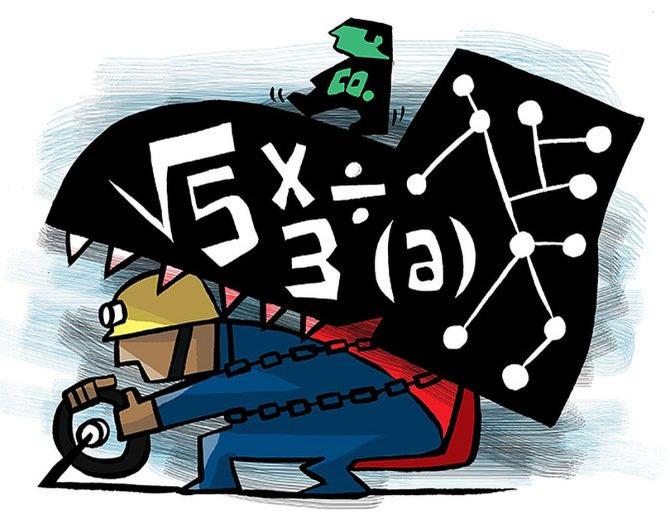The Code on Social Security, 2020 gives a lot of comfort to gig firms which recognise cab drivers or food delivery executives as ‘independent contractors’ who directly do business with customers with the help of their digitised platforms.

Uber, along with other top platform companies, recently won a ballot in the state of California in the US that will water down a landmark law meant to recognise gig workers as their employees and give them more social security cover.
The move is seen as a big win for gig firms lobbying for a light-touch policy regulation.
Contrast this to what transpired in India.
A new law, the Code on Social Security, 2020, was passed in Parliament recently, bringing gig workers under the social security framework for the first time.
The Code recognises gig workers as those who “perform work or participate in a work arrangement and earn from such activities outside of traditional employer-employee relationship.”
In other words, such platform workers would be no different from any other worker in the unorganised sector.
This gives a lot of comfort to gig firms which recognise cab drivers or food delivery executives as ‘independent contractors’ who directly do business with customers with the help of their digitised platforms.
Pleased with India’s move, Uber chief executive officer (CEO) Dara Khosrowshahi wrote a newspaper column, hailing it as a ‘gig the world can follow.’
Globally, there have been public debates on the nature of the job of gig workers and the social security framework they deserve to get.
In India, too, platform companies have boomed in the last four-five years, with firms such as Ola and Uber, Swiggy and Zomato competing against each other, aiming to get a lion’s share of the exploding internet and mobile phone market and attract the country’s vast and young labour force.
Dwindling income
Twenty-year-old Gaurav left his call centre job, which extracted 12 hours of his life every day, except Sundays, and gave him a paltry monthly income of Rs 20,000. In 2019, he started riding with Ola — after taking a bank loan and buying a car — and his monthly income jumped to Rs 52,000-Rs 78,000.
“I could earn the same amount of money working eight hours, instead of 12, in a day.
"Even on bad days, I earned Rs 1,500, and on normal days, it ranged between Rs 2,000-Rs 3,000,” says Gaurav, who disclosed only his first name.
However, Gaurav’s income took a severe hit after the onset of the Covid-19 pandemic.
“I used to earn Rs 9 per km earlier, but now it has reduced to Rs 7 per km.
"I had to give away my car on fixed income basis, as I have started outstation cab services to make ends meet,” says Gaurav, who pays a commission of 30 per cent on every ride.
Sonu Maurya, 27, who delivers for Swiggy, has a similar story to tell.
“When I joined Swiggy, I used to earn Rs 80 for delivering every order, which was matched by the restaurants, so the total came to Rs 160. Now, I get Rs 55 for every order,” he says.
Today, Maurya’s monthly income has dwindled to Rs 9,000, compared to Rs 24,000 that he earned earlier. The company has reduced the bonus, too.
In a statement, Swiggy said that regular delivery partners earn Rs 53 per order on an average and some top performing partners earn up to Rs 120 an order.
“It is important to note that the service fee per order is based on multiple factors, including distance travelled, waiting time, customer experience, shift completion and incentives,” the company said.
Maurya now delivers food for Swiggy by night and works at a broadband company in New Delhi during the day for a fixed monthly salary of Rs 15,000. He clocks around 13 hours of work a day – seven-eight hours in his day job and five hours at night.
Social security
Unlike countries such as South Africa, which gives social security to everyone who joins the workforce, in India, social security is limited to units employing a minimum number of workers in a traditional employer-employee relationship.
However, though the gig industry does not consider their workers as traditional employees, many of them do offer accident, medical or life insurance benefits.
During the lockdown earlier this year, firms such as Ola, Uber and Swiggy provided financial aid to their workers.
According to the newly released Social Security Code, all gig companies will be required to pay 1-2 per cent of their turnover towards a common pool of funds for gig workers, which will be maintained by the government.
However, there will be a cap on the contribution to the tune of “five per cent of the liability of the aggregator towards gig and platform workers.”
The Uber CEO had pitched this idea in the United States — that gig companies collectively establish a benefits fund, which would be used to give out cash to workers for the social security benefits that they want.
To allay the apprehensions of gig firms, India’s labour and employment ministry held a meeting with top operators on October 30 and assured them that the calculation of the turnover would be solely based on sales made by gig workers, rather than the total turnover of the group.
Cost burden
So will the new labour law increase the financial liability of gig firms or reduce the disposable income of workers?
“With the new code in place, a portion of the earnings of gig workers will move towards the social security benefit, thereby reducing their take-home income.
"This might lead to some initial resistance from this set of workforce,” says Tanuja Tewari, vice-president- human resources at Bigbasket.
She added that once workers understand the long-term impact of social security benefits, they would appreciate this move much better.
The government also expects gig workers to make a nominal contribution towards certain schemes, including the Employees’ Provident Fund and Employees’ State Insurance scheme, so that they “remain invested” in them.
The Centre has clarified that once it sets up a fund, companies will not be required to incur any additional costs towards social security of its gig workforce and may choose to withdraw their ongoing schemes.
“If social security is going to have a major financial impact on the profitability of their businesses in India, gig firms may cut down on the contractual benefits that the gig and platform workers had been receiving until now.
"For example, it may have a negative impact on the incentives and related contractual rates and payment being made to gig and platform workers,” says Ajay Singh Solanki, leader, labour and employment law practice at Nishith Desai Associates.
Exclusionary provisions
Instead of applying the social security law universally to all gig workers, The Code on Social Security (Central) Rules, 2020, states that it will be registration-based.
To begin with, only gig workers who have worked for a minimum of three months in the preceding year would be eligible.
The Rules state that gig and platform workers will have to update their particulars such as current address, present job, period of engagement with gig firms, skills, mobile number, “on the portal specified by the central Government.”
If they fail to do so, the worker may not be eligible to avail benefits of the social security schemes notified under the Code.
The onus for updating the information, along with the cost involved, may fall upon the gig workers, too.
The eligibility for availing benefits from the social security fund for gig workers will be determined by the government.










